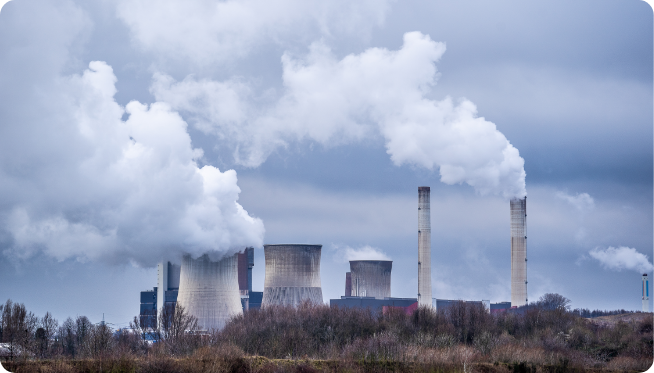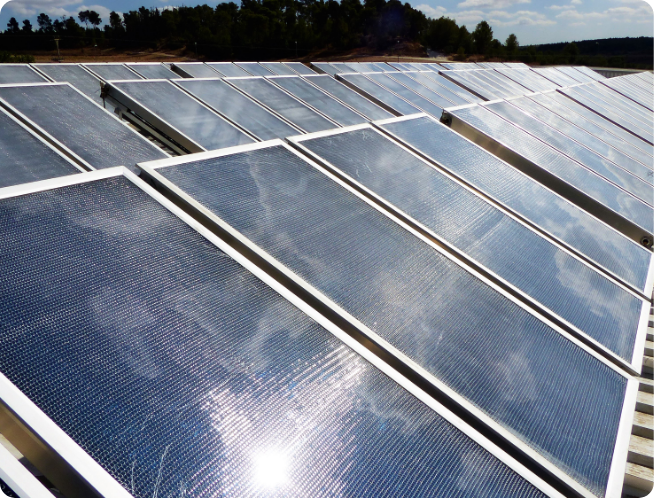The path to heat
decarbonization
Given universal challenges like climate change and environmental protection issues, shifting to renewable energy sources has become essential in pursuing a sustainable future.


the Need for
Renewable-Based Heat
Addressing Scopes 1, 2, and 3 of carbon emissions is crucial for companies aiming to lessen their environmental impact by adopting sustainable practices.
Scope 1 emissions are greenhouse gases a company puts into the atmosphere with its own property. For instance, when a company burns oil or gas to heat its industrial processes, these heating fuels create greenhouse gases. Those emissions belong in scope 1.


Reducing Scope 1 is normally the biggest challenge and also the biggest opportunity.
If achieved successfully, it allows companies to significantly lower emissions and increase the contribution to fighting climate change, as half of the world’s energy end-use is dedicated to heat, which accounts for about 40% of global CO2 emissions.
Moreover, such a reduction elevates their overall environmental performance, enhances operational efficiency, reduces energy costs, and increases profitability.

The need for tailored,
customized solutions
Achieving renewable heat and decarbonization requires more than a one-size-fits-all strategy. A holistic approach is needed to maximize energy efficiency and allow transition away from expensive and polluting fossil fuels. This is done from a combination of renewable heat sources and electrification of heat.
Electrification of heat via heat pumps allows the use of renewable electricity, such as wind turbines and PV. The use of different heat sources including solar thermal collectors, heat pumps, and waste heat, combined into a complete solution with thermal storage and advanced control technologies is critical in addressing the opportunity of Scope 1.


